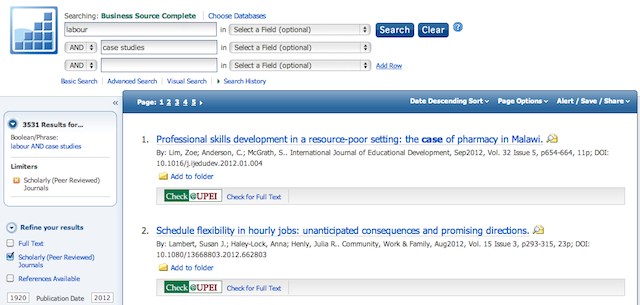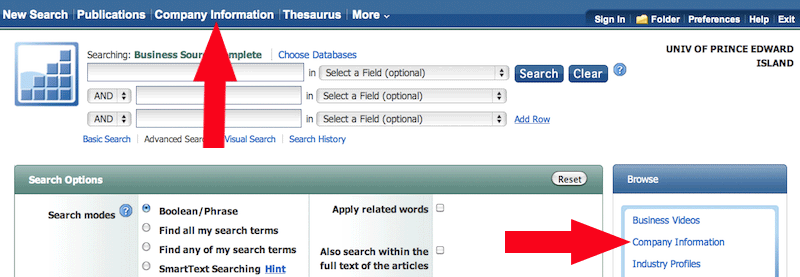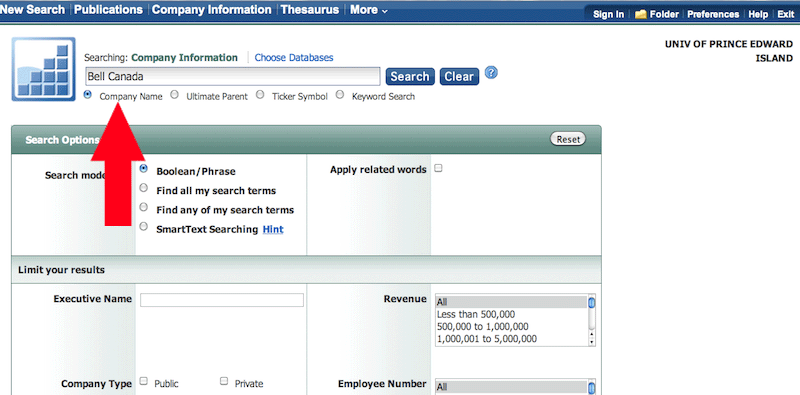| Find Quick Information about Chemicals, Formulae, Chemists, etc. |
Quick lookup information:
Chemical Information for Chemists: A Primer - Stacks QD8.5.C44 2014
McGraw-Hill Encyclopedia of Science & Technology - Reference Q121.M3 2002
Good for the non-scientist
CRC Handbook of Chemistry & Physics (online - also print edition in Reference QD65.H3)
Tables of physical and chemical formulae, properties of substances, etc.
|
|
| Chemistry |
SciFinder 
|
|
| Catholic Studies |
|
|
| Citing Sources: Canadian Politics |
When information is quoted, paraphrased, or summarized, the source of that information must be documented. Otherwise, you are guilty of plagiarism. To help you in avoiding plagiarism, see this tutorial.
Various standards have been created for citing sources in different disciplines such as APA (American Psychological Association), and MLA (Modern Language Association), and Chicago formats.
|
|
| Finding Web Resources: Canadian Politics |
There are many WWW sites relating to Canadian Politics. To locate authoritative sites look for those created by professional organizations, academic institutions, research agencies, and government departments. Evaluate the sites with a view to accuracy and currency.
American Political Science Association
Provides information on political science departments, conferences, grants and fellowships. Includes thirty-four groups "organized around common scholarly and professional interests".
|
|
| Finding Government Information: Canadian Politics |
Government documents can be useful in researching many Business Administration topics. At the Robertson Library, some government documents are Catalogued; use the Library Catalogue to locate these. For those government documents which are not Catalogued, check Government Information for sites which may be useful in identifying relevant documents.
|
|
| Finding Information About Organizations: Canadian Politics |
Organizations and associations may supply specialized information on a topic. DIRECTORIES can be useful for identifying these, and provide information such as personnel, addresses, telephone numbers, and publications. To locate information about political organizations and associations, use directories such as:
|
|
| Finding Quotations: Canadian Politics |
Colombo's Canadian Quotations
Provides approximately 6,000 quotations by 2,500 contributors who have a connection to Canada. Coverage ranges from 400 B.C. to December 31, 1973. Entries are arranged alphabetically by contributor. Includes a keyword and subject index.
REF: PN6081.C56
MacMillan Dictionary of Political Quotations
Provides over 12,000 quotations arranged by topic and then by author within each topic. Author index and concept index included.
REF: PN6084.P6E54 1993
|
|
| Finding Information About People: Canadian Politics |
|
|
| Finding Information About Political Parties/Movements: Canadian Politics |
Information about political parties and political movements can be located in books and journal articles. A number of political parties will also have a website.
Canadian Party Platforms 1867-1968
Provides a compilation of the platforms and policy statements issued by Canadian political parties or their leaders for federal elections from 1867-1968. Also includes a breakdown of the election results for each province.
REF: JL195.C3 1968b
|
|
| Finding Statistics: Canadian Politics |
|
|
| Finding Journal Articles: Canadian Politics |
The most current research on any academic topic is usually found in journal articles.
Use databases to find articles on a particular topic.
Robertson Library licenses databases for the campus community and they can be accessed directly through the campus network or if you are off campus you will be prompted for your UPEI credentials.
Print indexes can be found in the Reference area on the Main Level, shelved alphabetically by title [note: some indexes are also shelved in compact storage].
|
|
| Finding Information About Current Affairs: Canadian Politics |
Establishing the date an event occurred or locating a summary of a current event can be a useful starting point for researching a topic. The most recent information is available in publications that are designed to provide up-to-date coverage of new events in a timely fashion.
|
|
| Finding Subject Bibliographies: Canadian Politics |
Specialized bibliographies on a specific topic consolidate information from various sources including: books, journals, newspapers and theses. To locate subject bibliographies search the subject file of the Library Catalogue, i.e. Genocide - Bibliography.
Aboriginal Self-Government in Canada: A Bibliography 1987-1990
Provides references to material dealing with the emergence and definition of self government.
REF. E92.P47 1991
|
|
| Finding Books: Canadian Politics |
To find books, microforms, or audiovisual materials about your subject, use the Library Catalogue. Location codes and call numbers are included for each item. Selected electronic resources are also included in the catalogue.
|
|
| Finding Background Information: Canadian Politics |
When you are doing research on a topic, you will often encounter unfamiliar terms, or familiar ones used in a specialized way. Dictionaries can provide a quick definition and often some elaboration on the uses of the term. Encyclopedias provide background information on unfamiliar subjects, leading you quickly to key ideas and sources in developing your topic. Handbooks give an overview of the research that has already been done in a particular area.
|
|
| Canadian Politics |
|
|
| Citing Sources in Business Administration |
When information is quoted, paraphrased, or summarized, the source of that information must be documented. Otherwise, you are plagiarizing. To help you in avoiding plagiarism, review this tutorial to learn about academic integrity. In most cases that standard citation style for citing sources used in academic business writing is the American Psychological Association (APA) style. Check with your instructor to see if they have a preference for a different citation style.
|
|
| Finding Case Studies: Business Administration |
Find case studies in library databasesBusiness Source Complete
|
|
| Finding Past Business 495 Research Projects: Business Administration |
Business 495 Projects are stored in the Special Collections at the Robertson Library. Some projects from 1999 are listed in the library catalogue. Those items and the listing in the spreadsheet below can be viewed by requesting the item at the Service Desk.
|
|
| Check@UPEI: Business Administration |
How do you get to the full text of an article when it isn't in the database you are using?
1. Select the  icon when in the results or citation view. Here is an example from the Business Source Premier database. icon when in the results or citation view. Here is an example from the Business Source Premier database.

|
|
| Finding Information About Organizations: Business Administration |
Organizations and associations can be excellent resources for finding specialized information on a topic. Directories can be ideal for identifying these, and provide information such as personnel, contact information, and publications.
To locate information about business organizations and associations, use directories such as:
|
|
| Finding Information About People: Business Administration |
|
|
| Finding Statistics and Market Data: Business Administration |
|
|
| Finding Company Information: Business Source Complete (Tutorial) |
Example #1
- Click on "Company Information" in either the top banner or under "Browse", on the right-hand side.

- Enter the company name, and click on "Search".

|
|
| Finding Company Information |
DatabasesThe following databases are excellent sources of information for company information.
|
|
| Finding Journal Articles: Business Administration |
The most current research on any academic topic is usually found in journal articles. Journal articles typically provide information on specific research, events, or discoveries in a particular field. They do not usually provide background information. Peer Review? Review this page to learn more about peer-review: https://library.upei.ca/start-here/peer-review-definition
|
|
| Finding Books: Business Administration |
To find books on a particular topic, begin with a keyword search in OneSearch.
|
|
| Finding Background Information: Business Adminstration |
When you are doing research on a topic, you will often encounter unfamiliar terms, or familiar ones used in a specialized way. Dictionaries can provide a quick definition and often some elaboration on the uses of the term. Encyclopedias provide background information on unfamiliar subjects, leading you quickly to key ideas and sources in developing your topic. Many encyclopedia articles will also include brief bibliographies which will lead you to further sources of information.
|
|
| Business Administration |
|
|
| Library Resources for Specific Courses - Biology |
|
|
| Citing Sources, Scientific Writing, & Poster Presentations: Biology |
When information is quoted, paraphrased, or summarized, the source of that information must be documented. Otherwise, you are guilty of plagiarism. See the Library's Academic Integrity Tutorial.
|
|
| Journal Articles: Biology |
The most current research on any academic topic is usually found in journal articles. Databases Academic Search Complete
Provides fulltext for more than 8,500 journals, including more than 7,300 peer-reviewed journals and indexing and abstracts for over 12,500 journals from a variety of disciplines, including general science.
|
|
| Finding Government Information: Business Administration |
Government documents can be useful in researching many Business Administration topics. At the Robertson Library, some government documents are catalogued; use the Library Catalogue to locate these. For those government documents which are not catalogued, check Finding Government Information for sites which may be useful in identifying relevant documents.
|
|
| Books, E-Books & Videos: Biology |
To find books on a particular topic, begin with a keyword search in OneSearch.
|
|
| Dictionaries, Encyclopedias, Handbooks: Biology |
When you are doing research on a topic, you will often require a quick definition of a term, a specific fact, or condensed, detailed information about particular topics. Examples of Dictionaries, encyclopedias, handbooks and manuals covering biology topics include: Bergey's Manual of Systematic Bacteriology
A four volume set covering Gram-negative bacteria, Gram-positive bacteria, archaebacteria, cyanobacteria, and actinomycetes.
REF: QR81.B46
|
|
| Biology |
|
|
| Citing Sources: Foods and Nutritional Sciences |
Courses in Family and Nutritional Sciences cite sources using the American Psychological Association's (APA) style. This style is used in psychology and in the social sciences in general.
|
|
| Nutritional Sciences |
|
|
| Finding Journal Articles: Foods & Nutritional Sciences |
The most current research on any academic topic is usually found in journal articles.
|
|
| Finding Books: Foods & Nutritional Sciences |
Start your search for book material by using the library catalogue.
You can browse the library catalogue by subject, for example:
|
|
| Evidence Based Practice: Foods and Nutritional Sciences |
What is Evidence-based Practice (EBP)?
Evidence-based dietetics practice is about asking questions, systematically finding research evidence, and assessing the validity, applicability and importance of that evidence. This evidence-based information is then combined with the dietitian's expertise and judgment and the client’s or community’s unique values and circumstances to guide decision-making in dietetics.
|
|
| Finding Background Information: Foods and Nutritional Sciences |
Credo Reference Guides
Culinary Arts
Health: Nutrition
These can be a good starting point to explore resources on the history of food, culinary styles, and food science and nutrition. Includes encyclopedias, dictionaries, books, and audio-visual material. Use the tabs at top to browse through the reference guides.
|
|
| Applied Human Sciences |
|